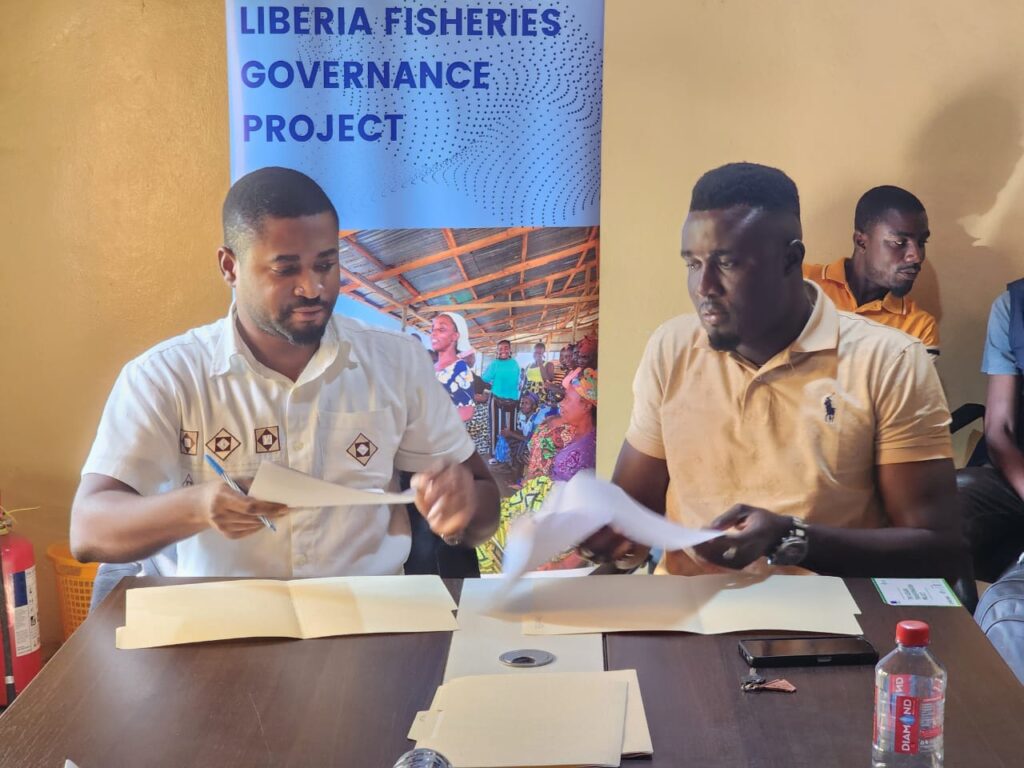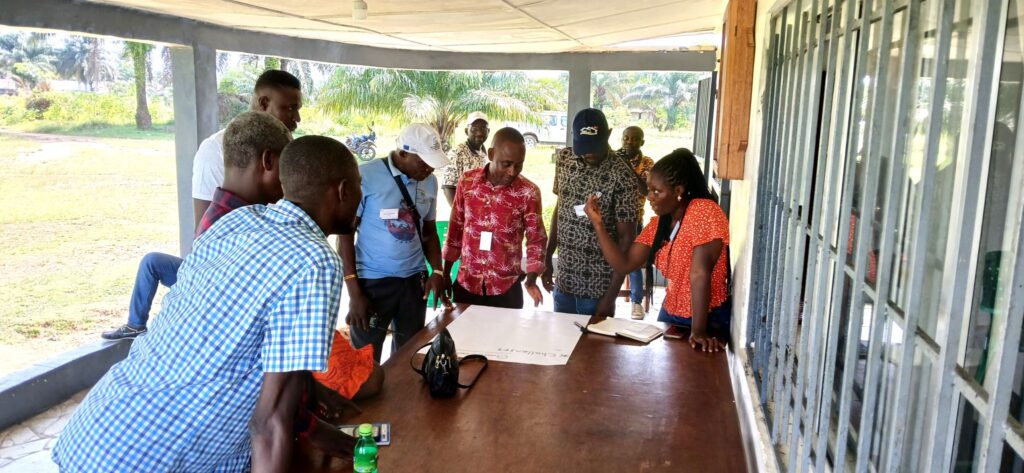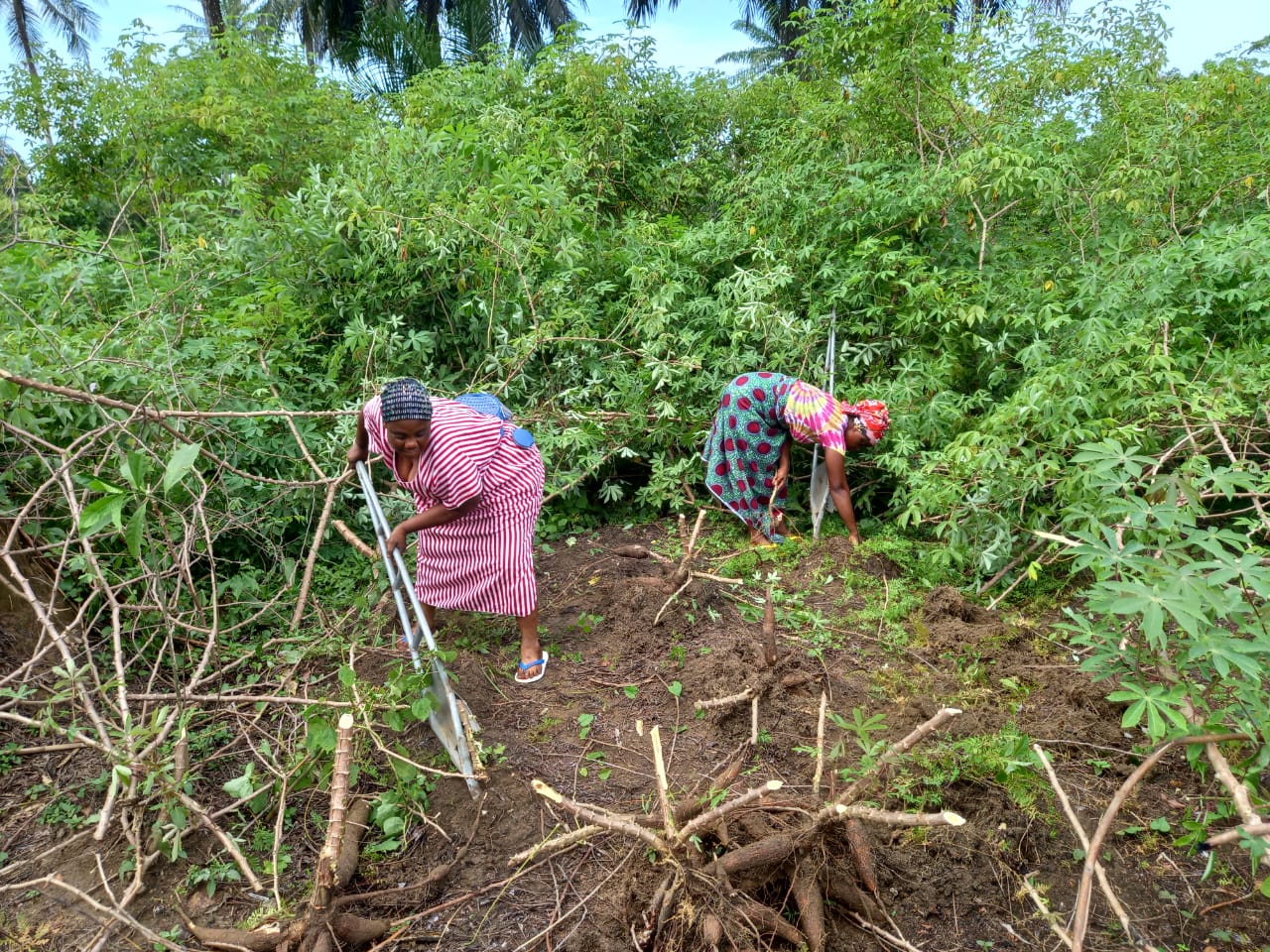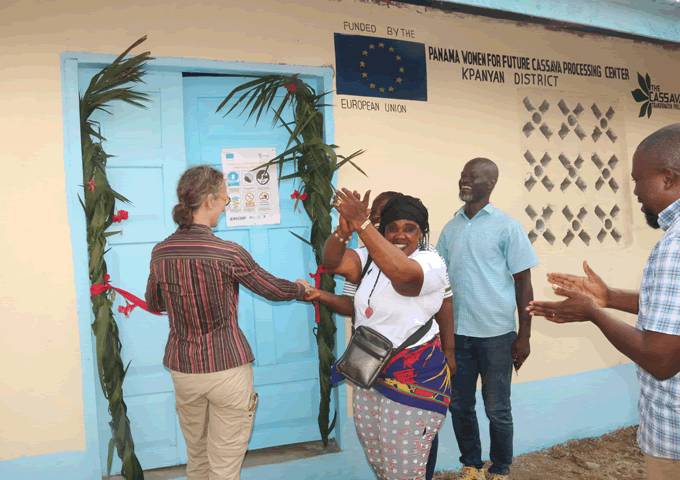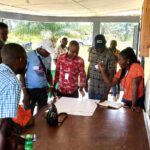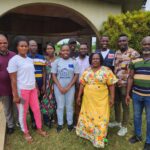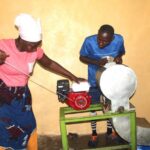MoU Signing with Beneficiary Organizations
The Liberia Fisheries Governance Project (LFGP) hosted an MoU signing ceremony with seven Beneficiary Organizations (BOs) to strengthen collaboration and ensure effective project implementation. <<Read more
Empowering Local CSOs for CMA Facilitation
The EU-funded Liberia Fisheries Governance Project (LFGP), in collaboration with the National Fisheries and Aquaculture Authority of Liberia (NaFAA), successfully concluded a three-day Training of Trainers (ToT) session for local civil society organizations (CSOs). <<Read more
CDO Organizes a Learning Tour for Collaborative Management Associations (CMAs) in Liberia
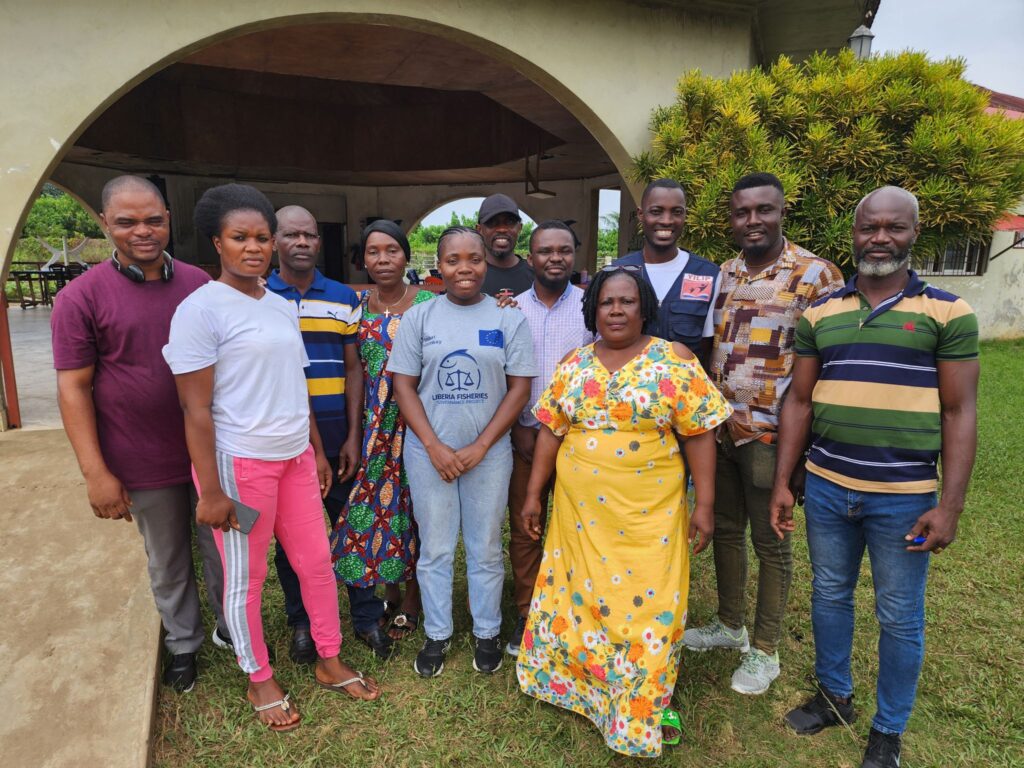 The project team, in collaboration with the National Fisheries and Aquaculture Authority (NaFAA), organized a series of four learning tours for five Civil Society Organizations (CSOs) to observe existing Community Management Associations (CMAs) in Liberia through the Liberia Fisheries and Governance project.<<Read
The project team, in collaboration with the National Fisheries and Aquaculture Authority (NaFAA), organized a series of four learning tours for five Civil Society Organizations (CSOs) to observe existing Community Management Associations (CMAs) in Liberia through the Liberia Fisheries and Governance project.<<Read
Cassava Enterprises Shine at National Agriculture Trade Fair
The 2024 National Agriculture Trade Fair (NAF) provided a vibrant platform for showcasing Liberia’s agricultural innovation and potential. <<Read more
Technology Transfer Boosts Starch Extraction Capabilities for Cassava Processors in Liberia

In February 2024, the Cassava Transformation Project (CASTRAP) being implemented in Liberia, and funded by the European Union organized a series of business-to-business (B2B) learning tours across Ghana. Ten promising enterprises from Liberia participated in these tours, with the goal of creating new opportunities for national, regional, and international market expansion and partnerships. <<Read More
EU Delegation to Liberia Visits CASTRAP Communities in Maryland County.

On May 1, 2024, the EU Delegation to Liberia, led by Ambassador Nona Deprez and joined by ambassadors from Germany, France, Sweden, and Ireland paid a working visit to two cooperative enterprises in Maryland county.<<Read More
CASTRAP Participates in the EU Delegation to Liberia Roundtable Discussion on the Agriculture, Energy, and Fishery Sectors
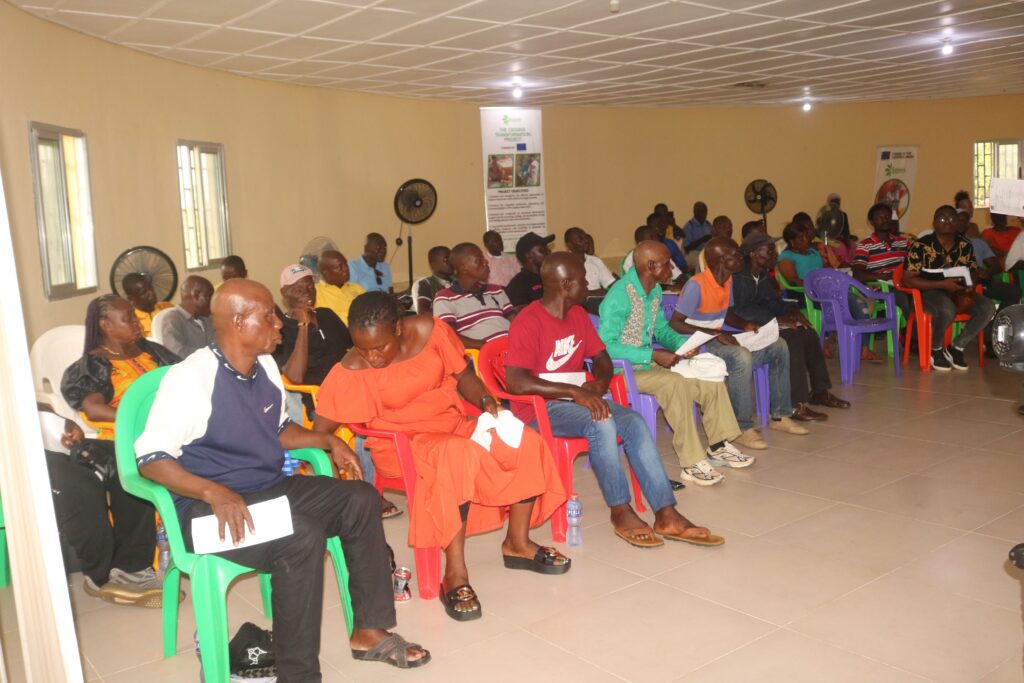
On May 1, 2024, the EU Delegation to Liberia, led by Ambassador Nona Deprez and joined by ambassadors from Germany, France, Sweden, and Ireland, held a one-day roundtable discussion. <<Read More
Empowering Youth Entrepreneurs: CASTRAP’s EU-Funded Trains Youth in Pastry-Making and Baking for Sinoe and Grand Gedeh Counties
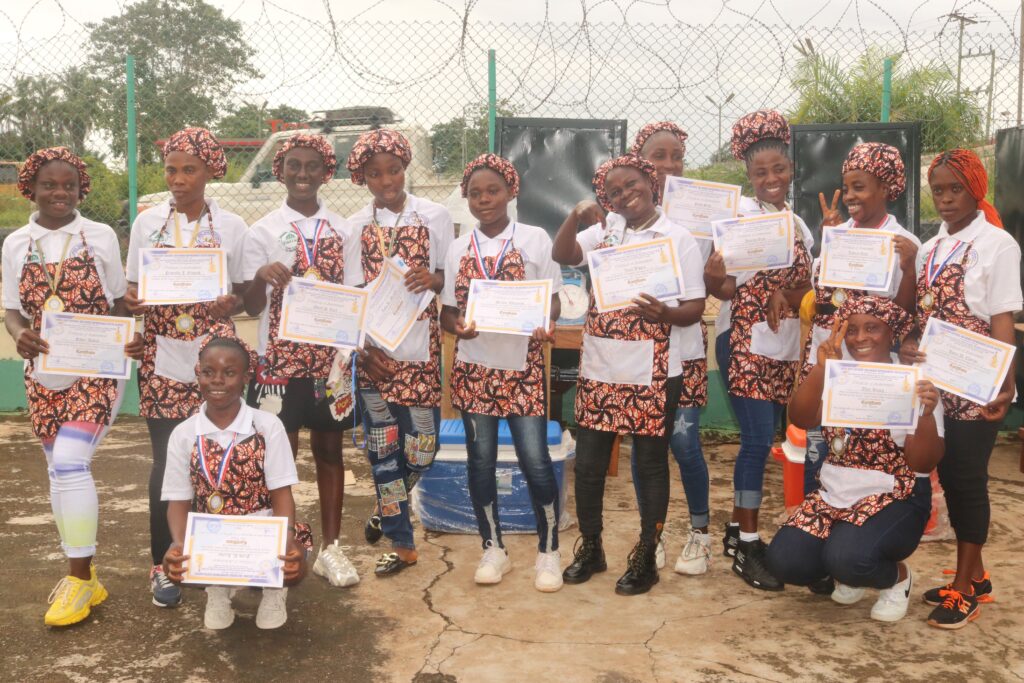 The European Union funded Cassava Transformation Project (CASTRAP) has trained 24 entrepreneurial but underprivileged youths in the South-eastern counties of Grand Gedeh and Sinoe in baking and pastry-making using cassava and wheat flour. <<Read More
The European Union funded Cassava Transformation Project (CASTRAP) has trained 24 entrepreneurial but underprivileged youths in the South-eastern counties of Grand Gedeh and Sinoe in baking and pastry-making using cassava and wheat flour. <<Read More
Bridging the Gap: Strengthening Market Linkages for Sustainable Agricultural Growth in Ghana.
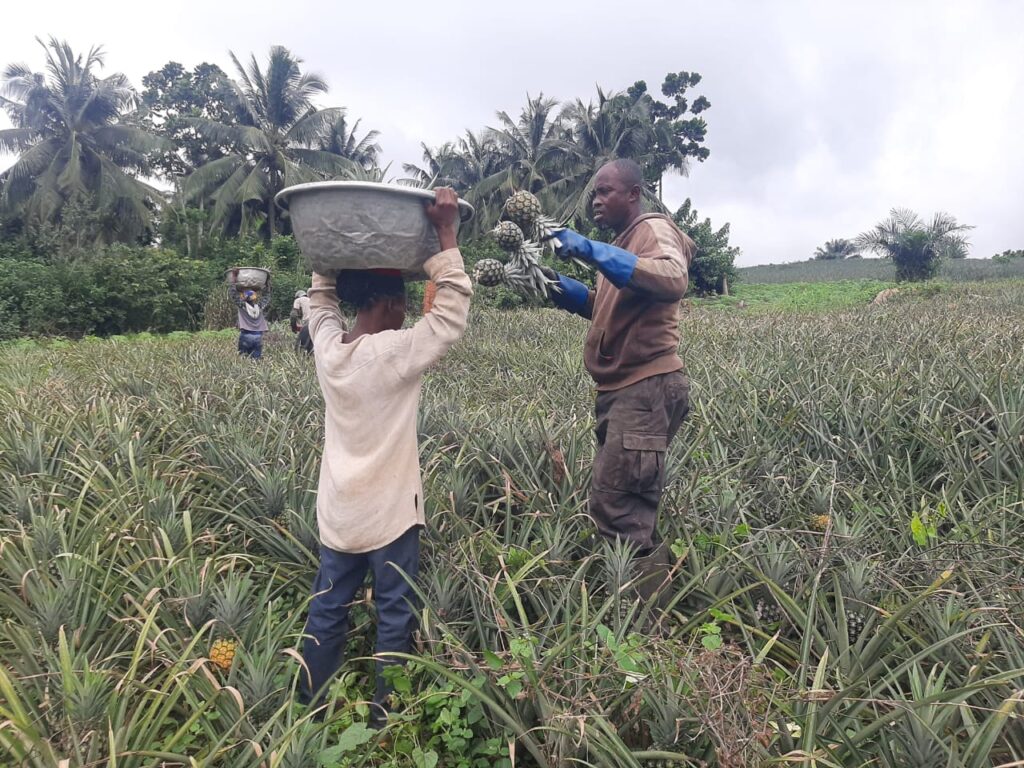 Recognizing the challenges faced by local food production is a crucial first step in dealing with the intricate problem of post-production losses affecting both smallholder farmers and farmer cooperatives throughout Ghana. Undoubtedly, one of the key solutions for addressing these losses is the establishment of strong market connections between producers and processors. <<Read More
Recognizing the challenges faced by local food production is a crucial first step in dealing with the intricate problem of post-production losses affecting both smallholder farmers and farmer cooperatives throughout Ghana. Undoubtedly, one of the key solutions for addressing these losses is the establishment of strong market connections between producers and processors. <<Read More
“Green Skills for Youth: Towards a Sustainable World”
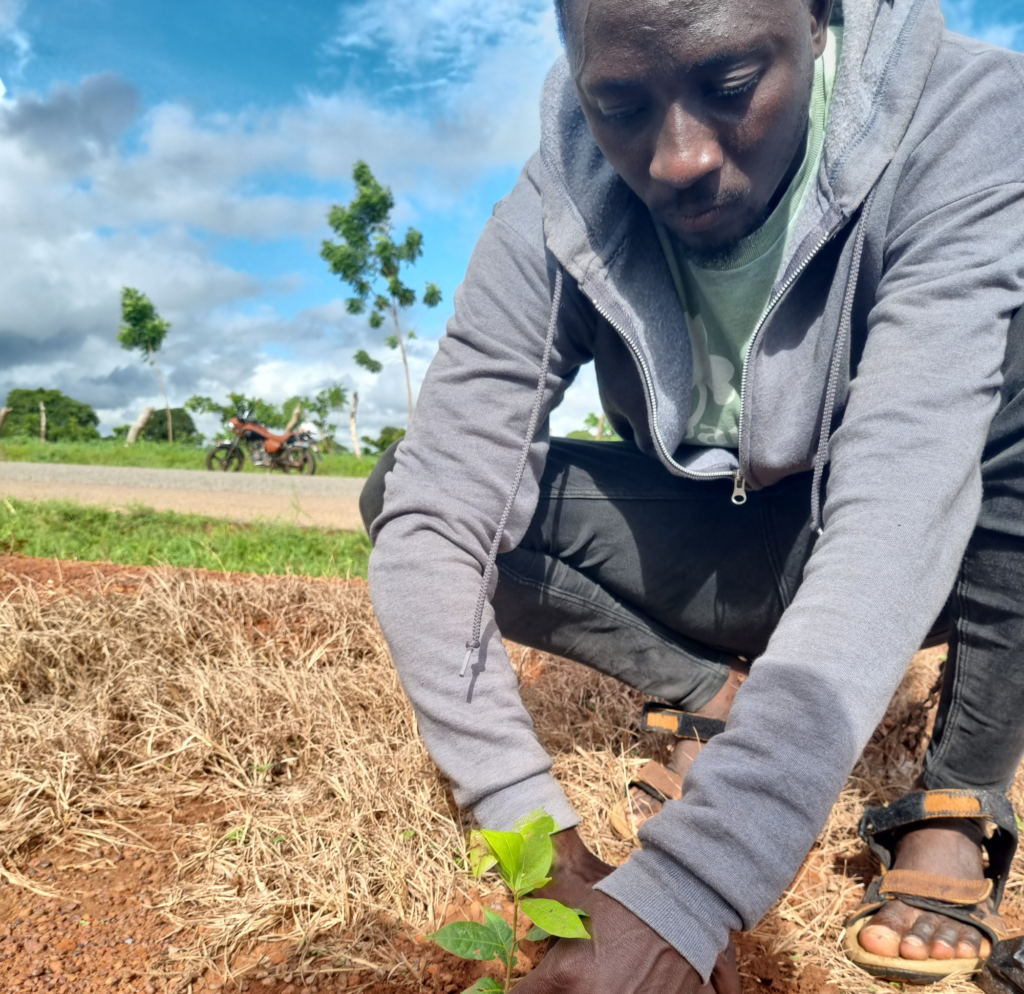 Every year on August 12th, International Youth Day is observed, an initiative that honours the virtues of young individuals and acknowledges the obstacles that the youth of today may encounter. This year, the theme for International Youth Day is “Green Skills for Youth: Towards a Sustainable World”. <<Read More
Every year on August 12th, International Youth Day is observed, an initiative that honours the virtues of young individuals and acknowledges the obstacles that the youth of today may encounter. This year, the theme for International Youth Day is “Green Skills for Youth: Towards a Sustainable World”. <<Read More
Beneficiary Spotlight
Harvesting Empowerment: The Mango-Pine Project’s Journey with Elder Ansah and Smallholder Farmers
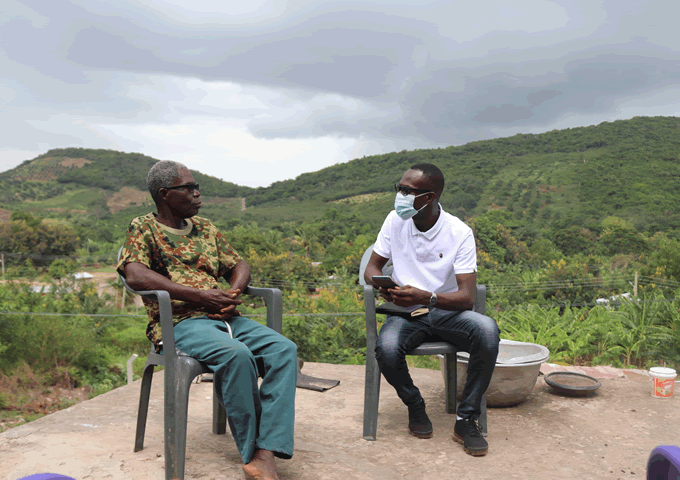 In the vast expanse of lush greenery within the Abonse community located in the Eastern Region, our Mango-Pine project team engaged in a heartfelt conversation with Elder Ansah, a highly experienced mango farmer residing in the community. With a 16-acre mango farm under his ownership, Elder Ansah, alongside his family, diligently oversees its operations. <<Read More
In the vast expanse of lush greenery within the Abonse community located in the Eastern Region, our Mango-Pine project team engaged in a heartfelt conversation with Elder Ansah, a highly experienced mango farmer residing in the community. With a 16-acre mango farm under his ownership, Elder Ansah, alongside his family, diligently oversees its operations. <<Read More
CASTRAP Conducts Action Audit for Six VSLAs
 CASTRAP conducted an action audit for six (6) of the twenty-seven (27) groups that had completed their cycles in the project landscape. As per the accepted VSLA principle, a full-cycle action audit is performed six to twelve months following savings, depending on the program’s design.<<Read More
CASTRAP conducted an action audit for six (6) of the twenty-seven (27) groups that had completed their cycles in the project landscape. As per the accepted VSLA principle, a full-cycle action audit is performed six to twelve months following savings, depending on the program’s design.<<Read More
CASTRAP Distributes Improved Cassava Cuttings to 445 Beneficiaries
 CASTRAP has distributed over 313,375 improved cassava cuttings to 445 beneficiaries across the project landscape. This comes at the back of the CASTRAP baseline survey that identified access to improved and healthy cassava materials as a major challenge to effective cassava production in the South East of Liberia. <<Read More
CASTRAP has distributed over 313,375 improved cassava cuttings to 445 beneficiaries across the project landscape. This comes at the back of the CASTRAP baseline survey that identified access to improved and healthy cassava materials as a major challenge to effective cassava production in the South East of Liberia. <<Read More
Innovative Cassava Harvesters Introduced by CASTRAP Generates Positive Feedback from Farmers
The project baseline observed that harvesting was considered one of the most difficult activities in cassava cultivation especially for women who dominate the production of the crop in the South East. Most respondents in that study indicated that this activity is usually the preserved of men due to its high energy requirement. <<Read More
The National Authorizing Office visits the Cassava Transformation Project Sites
 A team from the National Authorizing Office (NAO) of the Ministry of Finance Development Planning, led by Ms. Clementine Rennie, the NAO’s project focus person, visited the project sites in Sinoe and Grand Gedeh counties. This activity is part of NAO oversight duties for projects funded by European Development Funds. The goal of the two-day monitoring visit by the NAO team was to evaluate the project’s development throughout the implementation phase. Read more
A team from the National Authorizing Office (NAO) of the Ministry of Finance Development Planning, led by Ms. Clementine Rennie, the NAO’s project focus person, visited the project sites in Sinoe and Grand Gedeh counties. This activity is part of NAO oversight duties for projects funded by European Development Funds. The goal of the two-day monitoring visit by the NAO team was to evaluate the project’s development throughout the implementation phase. Read more
CASTRAP Trains 36 Processors on Cassava Value-added Products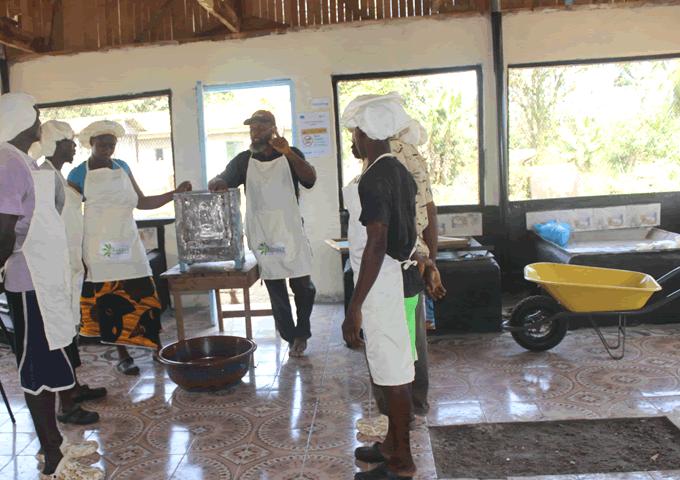
Fresh cassava has a short shelf life of fewer than three days. As a result, processing is essential for producing value-added products. However, the lack of processing knowledge among processors has created several constraints in the processing of cassava products. <<Read More
CASTRAP Commissions a Mini Processing Center for the Panama Women for the Future Association in Sinoe County
CASTRAP has commissioned the Panama Women for Future Association’s newly constructed mini-processing center in Sinoe County. This activity is part of the project’s objective of strengthening the efficiency of main actors in the cassava value chain to improve inputs and increase the production, processing, and commercialization of cassava. Read more
EU Cooperation Officer Engages with the Lydia’s Field Enterprise
 The Cooperation Officer of the European Union to Liberia, Ms. Geetrui Louwagie (PhD), engaged in an interesting interaction with Lydia’s Field Enterprise during a recent project site visit in Zwedru, Grand Gedeh County. Lydia’s Field Enterprise is a privately owned integrated cassava production and processing facility. The business, which has 35 employees, has been in operation since 2021 and processes cassava into gari, super gari, and good grade cassava flour. <<Read More
The Cooperation Officer of the European Union to Liberia, Ms. Geetrui Louwagie (PhD), engaged in an interesting interaction with Lydia’s Field Enterprise during a recent project site visit in Zwedru, Grand Gedeh County. Lydia’s Field Enterprise is a privately owned integrated cassava production and processing facility. The business, which has 35 employees, has been in operation since 2021 and processes cassava into gari, super gari, and good grade cassava flour. <<Read More
European Union Cooperation Officer Visits the Cassava Transformation Project Sites
 The Cassava Transformation Project (CASTRAP) is making significant progress toward its goals and objectives in Southeast of Liberia. The Cooperation Officer for Rural development, Food security and Environment at the EU Delegation in Liberia, Ms. Geetrui Louwagie (PhD), visited project sites between March 27 and March 30, 2023, to interact with the project’s beneficiaries and evaluate the level of progress in the implementation of activities since her previous visit in March 2022. <<Read More
The Cassava Transformation Project (CASTRAP) is making significant progress toward its goals and objectives in Southeast of Liberia. The Cooperation Officer for Rural development, Food security and Environment at the EU Delegation in Liberia, Ms. Geetrui Louwagie (PhD), visited project sites between March 27 and March 30, 2023, to interact with the project’s beneficiaries and evaluate the level of progress in the implementation of activities since her previous visit in March 2022. <<Read More
Power to the Fishers Project Testimonial From Comfort Dampson – a Project Beneficiary
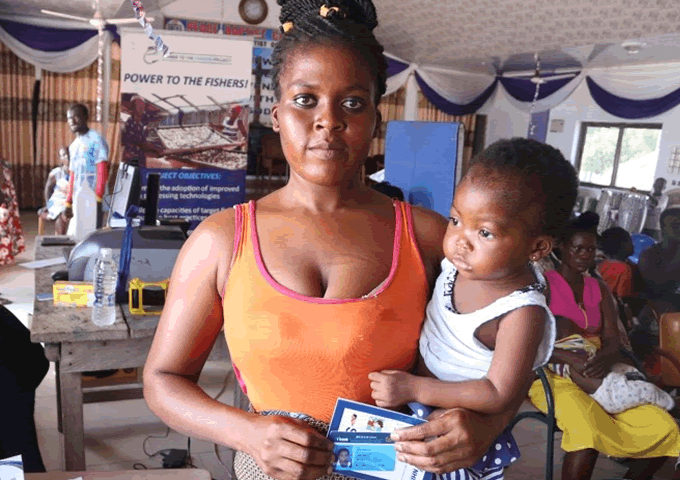
Comfort Dampson, a 36-year-old woman and a fish processor from Woarabeba, is a mother of two. Meeting the health needs of her children poses a considerable challenge, and this is evident in her remarks at the start of the PTF project: <<Read More
United Nations Industrial Organisation’s First Verification Visit to WACOMP-Ghana Sub-contracting Matching Scheme Target Areas

On 11th January 2023, the United Nations Industrial Organization (UNIDO) embarked on their first verification visit to selected target areas of the WACOMP-Ghana Sub-contracting Matching Scheme implemented by CERATH Development Organization (CDO). The verification activity was primarily organized to obtain direct feedback from target beneficiaries on the initial activities carried out within the first quarter of the project. As part of the verification exercise, the UNIDO team visited AGROPAL West Africa Limited and selected farmer cooperatives. <<Read More
Tree Monitoring Activities Under the Integrated Resilient Savannah Agroforestry Project

After the first phase of the tree planting exercise in August 2022, our team have been on the field monitoring the trees planted by beneficiary farmers and community members in the East Mamprusi District. <<Read More
CDO Engages Pineapple and Mango Farmers in the Eastern and Central Regions of Ghana

CERATH Development Organization through the WACOMP Sub-contracting Matching Scheme V1 is engaging selected pineapple and mango producers in the Eastern and Central regions of Ghana. The aim of the project is to strengthen the export competitiveness of selected mango and pineapple value chain actors through a cocktail of technical assistance to enhance sustainable and climate-smart production, processing, and increased compliance to international standards. <<Read More
Coconut Waste Project Implementing Partners Hold A Stakeholder Meeting

CERATH Development Organization (CDO), the La Nkwantanang-Madina Municipal Assembly (LaNMMA) and the Tree Crops Center (TCC), the consortium implementing the Coconut Waste Project, organized a stakeholder meeting to deliberate on the progress of the project. <<Read More
CASTRAP Pilots Mechanized Weeding to Support Small Scale Farmers

During the project baseline study, farmers outlined weed devastation as the most difficult constraint affecting cassava farming and thus lowering their yields. Considering that about 60 percent of farmers are women, and another 65 percent are above 65 years, it becomes even more difficult during the rainy season where farmers have to weed at least 3 times before. <<Read More
EU’s Second Verification Visit to the PTF Project

The past week, 14 November–17 November 2022, saw the #EU pay a second verification visit to the PTF project sites. The visit, among others, was to gain firsthand accounts of project impacts and interrogate the project’s sustainability measures as the project grinds to a close. <<Read More
Alex Donkor Shares His VSLA Story
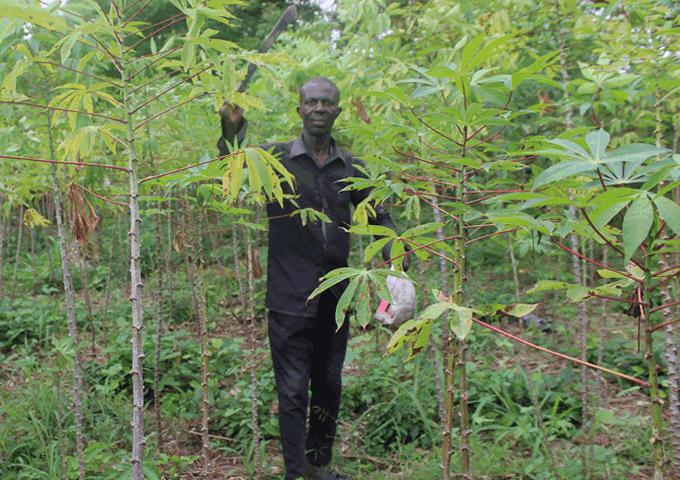
News is said to spread like wildfire; this is the story of Alex Donkor and what led to his participation in the Power to the Fishers (PTF)-facilitated village savings and loans association (VSLA). Alex, a 49-year-old farmer and family man in Ekumfi Akra, was introduced to the initiative by a friend. Having heard of PTF’s ‘Adom’ VSLA and its benefits, Alex agreed to register his membership <<Read More
CASTRAP Facilitates the Establishment of Quality Management Systems for Processing Centers Operating Within the Project Landscape
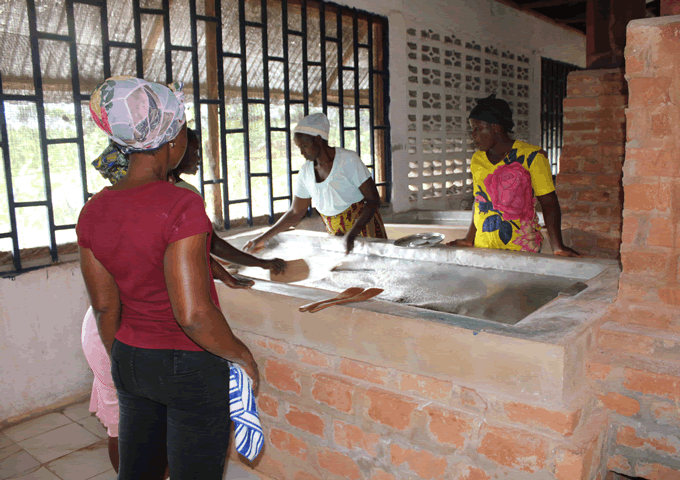
To assess the quality of cassava products, two important factors must be taken into consideration; the requirement to ensure food safety and the need to safeguard the health of both the individual processor and the customer. <<Read More
The Journey of Mrs. Keita, President of Panama Women for the Future Farmers Association -CASTRAP Beneficiary

Mrs. Alecia Toe Kieta talks about her life, introduction to village savings and loans association (VSLA), and her vision for her association in Panama community, Liberia.
My name is Mrs. Alecia Toe Keita. I was born and raised in Panama Community, Kpayan District, Sinoe County. <Read More>
CASTRAP Facilitates the Formation of 10 VSLAs with Seed Fund of USD 2,000.00
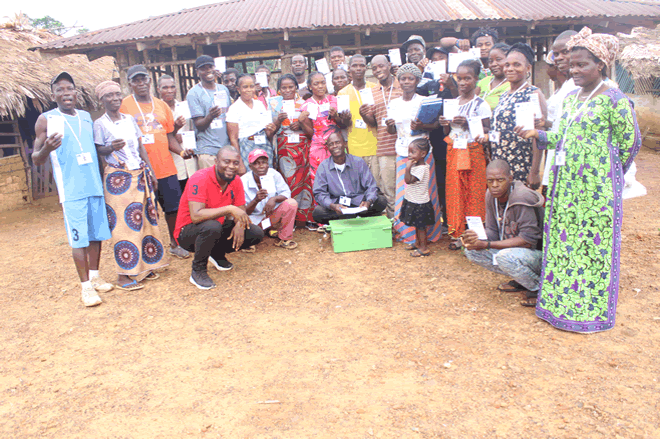
During CASTRAP’s baseline survey in the South East of Liberia, it was observed that most farmers have no access to cash savings to enlarge and sustain their enterprises or farm sizes. <<Read More
Share-out for the Nyame Nti, Abotare, and Boafo VSLAs

The first cycle for the Power to the Fishers (PTF) formed VSLAs in Otuam and Senya Bereku communities has ended on a successful note. Group members could not hold back their joy as they witnessed the share out of their savings.<<Read More
Field Visit by the NAO/TAT Delegation to the PTF Project Communities

This past Friday, 1 April 2022, a delegation from the National Authorizing Office (NAO) (of the Ministry of Finance) and the Technical Assistance Team (TAT) embarked on a 1-day joint field visit to the EU-funded Power to the Fishers (PTF) project communities <<Read More
CASTRAP Conducts Agribusiness Technology Needs Assessment in the South East of Liberia
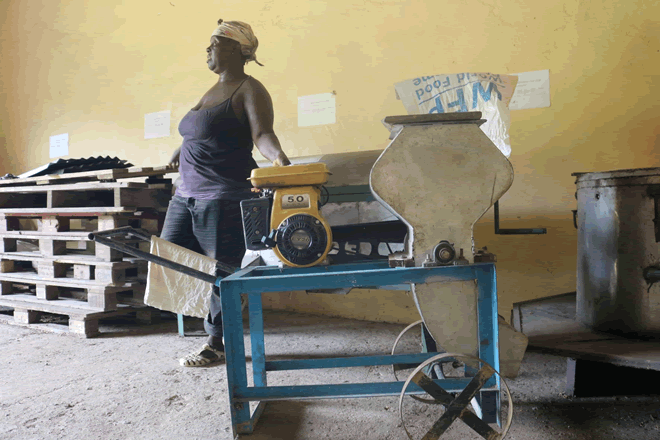
Downstream actors along many agribusiness value chains rely more on technology to serve their value addition needs. This is typically the case along the cassava value chain <<Read More
Coconut Husk: A Waste or A Raw Material?
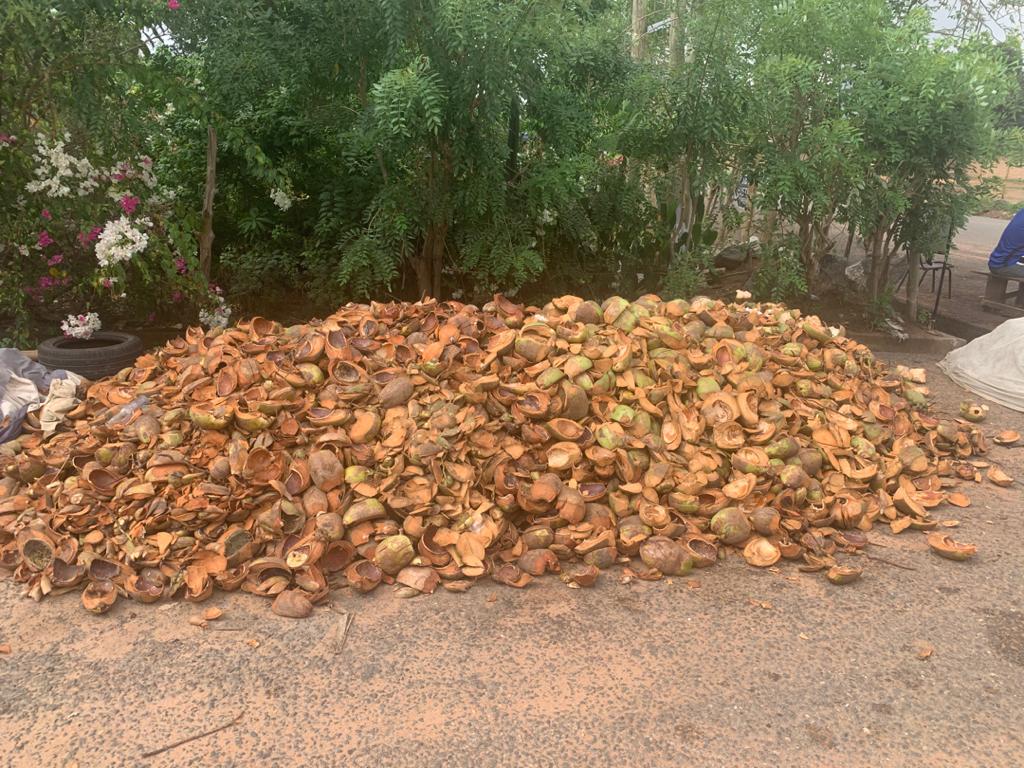
The daily average volume of coconut husk waste generated by coconut vendors within the La Nkwantanang-Madina Municipality is about 18 tons, according to the Coconut Waste Project baseline report, 2021. <<Read More
CASTRAP Team Adopts Farmers Field School Training Method in the Project Communities

Extension service provision to farmers remains low within the agriculture landscape of Liberia. It is however important that any extension service training makes room for farmers to actively participate in the process involved in knowledge sharing and technique acquisition <<Read More
CASTRAP Trains its Staff and Key Stakeholders on Gender and Social Inclusion
The Southeast of Liberia is widely known for being underdeveloped. The socio-economic condition which characterizes the landscape places marginalized groups like women, children, unskilled youth <<Read More
CASTRAP Agronomy Team Trains Farmers on Farm Measurement Methods and Yield Estimation
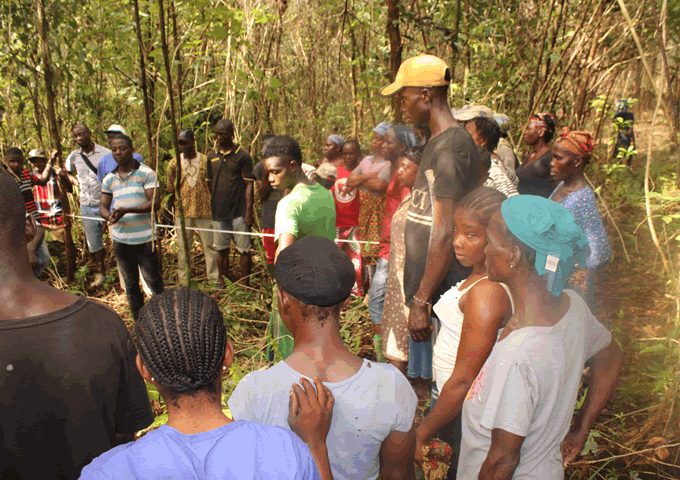
The ratio of extension officers to farmers in Liberia’s Southeast ranges between 1: 15000–30000, This results in minimal assistance and inadequate training on good agricultural practices (GAPs) for farmers <<Read More
A Special Day for “Nkwagye Firi Ewuradze”, “Abotrɛ” and United we Stand VSLAs

Three VSLAs formed in Dago, Mumford, and Akra gathered to share, with much excitement, their weekly contributions that lasted for 9 months. ‘Nkwagye Firi Ewuradze’, ‘Abotrɛ’ and ‘United we Stand’ VSLAs from Dago, Mumford, and Akra respectively raised a total amount of Ghc21,920.00 <<Read More
Happy Day for the ‘Ebenezer’, ‘Kuroyε’ and ‘Ɔkyɛso’ VSLAs

What a joyous occasion it was for the ‘Ebenezer’, ‘Kuroyε’ and ‘Ɔkyɛso’ Village Savings and Loans Associations (VSLA) as members of these groups lined up to receive their monies. These three groups have completed their first VSLA cycle and had their share-out of the monies saved in their ‘mini bank’ after 9 months of saving. <<Read More
‘Konkohemaa’ of Mumford Visits CDO Office

Today, CERATH Development Organization (CDO) received unexpected guests from Mumford, one of the Power to the Fishers project beneficiary communities. Madam Adjoa Bedu, the ‘konkohemaa’ (lead fishmonger) of Mumford, and her assistant, Madam Charity Manso, visited CDO’s office in Accra. <<Read More
Milestone Alert: 13 VSLAs Formed under the PTF Project raise Gh¢75,265 after First 180 Days

After 180 days of savings, 13 Village Savings and Loans Associations (VSLA) formed under the EU-funded Power to the Fishers (PTF) project have managed to raise Gh¢75,265. <<Read More
Reconnaissance Visit by Student Researchers to PTF project communities

In the last week of November 2021, a reconnaissance visit to PTF communities was organized for the student researchers from the Centre for Coastal Management (CCM) of the University of Cape Coast. <<Read More
VALUING TOILETS – Is the World Making Progress in Faecal Management?

“Visualize a 9-year-old girl who wakes up in the middle of the night to attend to nature’s call and has to walk to a public toilet outside of her compound or to a nearby bush. Imagine the possible dangers and the inconvenience”. <<Read More
The PTF Project Commences the Operationalization of the Fish Processing Centres

The Power to the Fishers project has commenced the operationalization of its constructed fish processing centres. Under the first phase of operationalization, the project team is piloting 3 centres out of the 6 that have been built. These 3 centres are located in the Senya Bereku, Winneba, and Kesewokan communities. <<Read More
European Union Delegation Visits The Coconut Waste Project
To assess the level of the implementation of the EU-funded Coconut Waste Project (COWAP), the European Union Delegation (EUD) to Ghana visited the COWAP team on the 9th of November, 2021. <<Read More
The EU Pays a Verification Visit to the PTF Project

Representatives from the European Union Delegation – Christopher Ackon, programme officer, and Valerie Hairson, finance officer – paid a verification visit to the EU-funded Power to the Fishers project (PTF) communities from the 1st November to 5th November 2021. <<Read More
Study Tour to the Ashaiman Aquaculture Demonstration Center

The PTF team embarked on a study tour to the Ashaiman Aquaculture Demonstration Centre. The objectives of the tour were for the team to explore the aquaculture production systems in Ghana, as well as understand the production dynamics in fish farming. <<Read More
Training On Healthy Fish Handling Organized For Fish Processors

Handling fish hygienically is a process that starts after fish is captured and landed at the shore. Fish handled under unhygienic conditions is subject to microbial and chemical contamination causing illnesses related to foodborne diseases. <<Read More
A day with the )kyɛso VSLA

Meet the Ɔky3so Village Savings and Loans Association, located in the Dago community. As part of monitoring activities for the PTF Project established VSLA groups, the project team joined in their share purchase meeting. <Read More
Reminiscing on World Humanitarian Day 2021
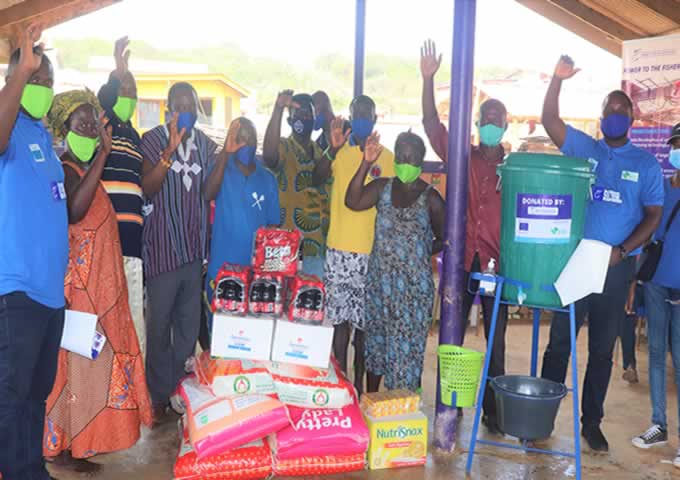
As we observed World Humanitarian Day yesterday, with the theme “Immediate Consequence of Climate Change“, we are also reminded of the stories and struggles that lie in front of aid workers and organizations in Ghana and across the globe. <<Read More
Dago Bounces Back to Life After the Lifting of the 2021 Closed Fishing Season

With the lifting of the 2021 closed season, Dago, a fishing community along the coast of the Central Region of Ghana, is bubbly once again with commercial activity. Having been made seemingly idle with the month-long closed season, Dago is back to life. <<Read More
The Coconut Waste Project Commences Formation of Learning Groups
The Coconut Waste Project has commenced the formation of learning groups for coconut vendors within the project target areas. Learning groups have been formed for Coconut Vendors stationed within the University of Professional Studies (UPSA), Antima-Madina (Madina Zongo Junction), Oman Fm, Dome-Kissiman, Adenta, Oyarifa, and Ashaley Botwe enclaves <<Read More
PTF Project Partners with FC on Closed Season Awareness Creation

The EU-funded Power to the Fishers project partnered with the Central Regional office of the Fisheries Commission (FC) to embark on a week-long sensitization and awareness creation activities among fisherfolk in the Central Region on the upcoming 2021 closed fishing season. This was carried out from 14th to 18th June 2021 <<Read More
CERATH Development Organization Celebrates its 3RD Anniversary
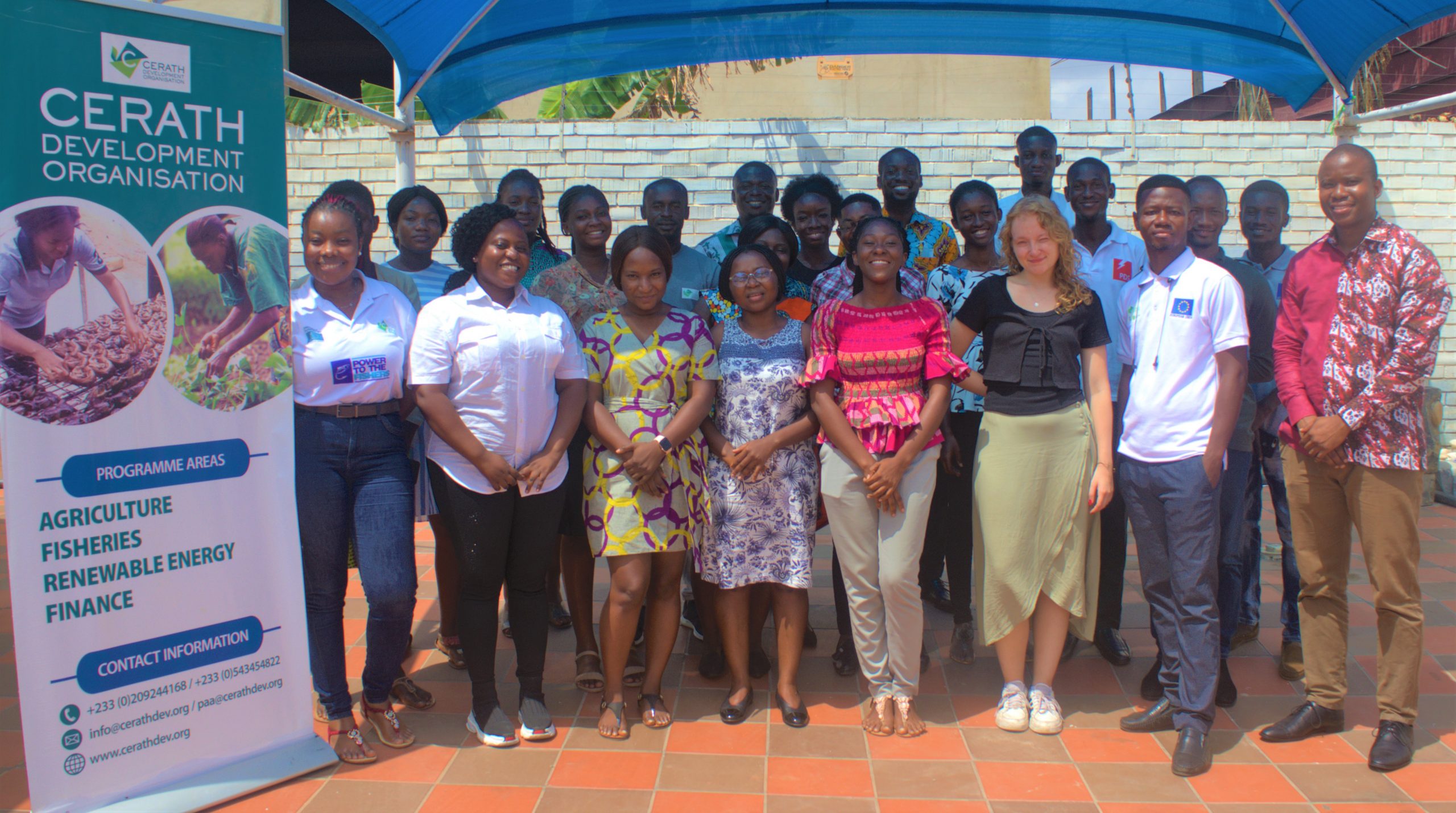
CERATH Development Organization celebrated its 3rd anniversary today the 18th of June 2021. The celebration began with the singing of psalms and hymns to thank God for all the blessings the organization has chalked within the space of 3 years. <<Read More
The PTF Project Inaugurates 2 Fish Processing Centres in Senya Bereku & Winneba

The Power to the Fishers (PTF) project has inaugurated two communal fish smoking centres in the Senya Bereku and Winneba communities. The event, which was held in both communities, saw in the attendance a representative of the EU Delegation to Ghana, Executive Director of the Fisheries Commission, officials of the Ministry of Finance, and the technical assistance team (TAT) for the CSO-RISE programme. Also present were the traditional councils of both communities, fisherfolk and community members. <<Read More
The Coconut Waste Project Conducts Baseline Study in its Project Areas
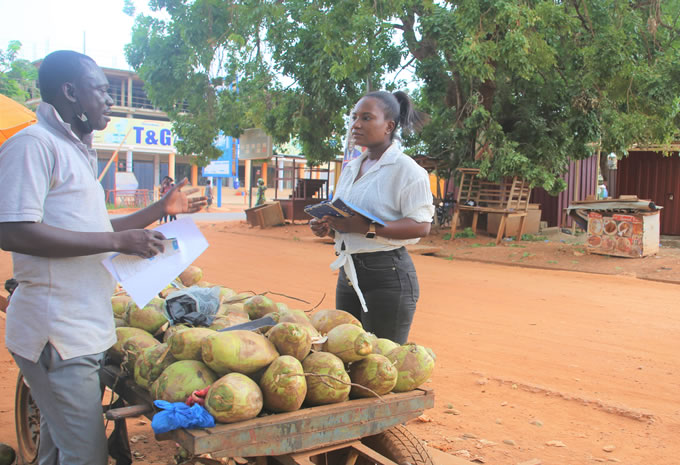
To understand the project context and inform implementation, the Coconut Waste Project carried out a baseline study within its project area – the La Nkwantanang Madina Municipality and its surrounding communities. <<Read More
Empowering Women Financially Through Village Savings and Loans Association
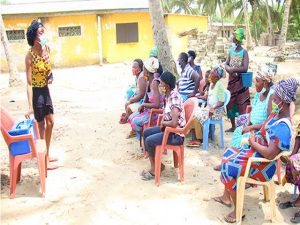
Accelerating women’s empowerment is intricately linked to the strengthening of the socio-economic livelihood of fishing communities in the coastal savannah zones of Ghana. The PTF project offers trainings to fisherfolk, especially women fish processors, in all the coastal fishing communities of operation within the five project districts in the Central and Western regions of the country. <<Read More
CERATH Meets With CCM to Sponsor Student’s Research Work
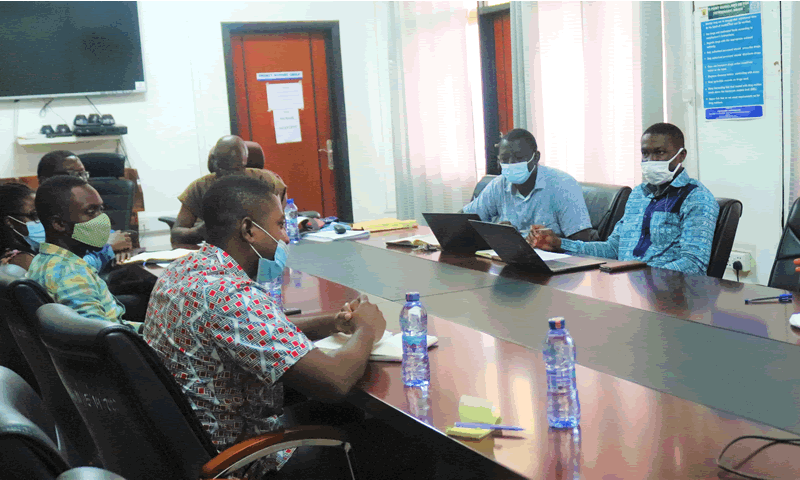
The EU-funded Power to the Fishers (PTF) project has established an agreement with the Centre for Coastal Management (CCM), of the University of Cape Coast, towards the enrolment of Master’s students as PTF student researchers. <<Read More.
The Coconut Waste Project Commences With Kick-Off Meetings With LANMMA

CERATH Development Organization (CDO), The Tree Crops Center (TCC), and the La Nkwantanang-Madina Municipal Assembly (LaNMMA) have received funding from the European Union (EU) to implement the Coconut Waste Project. The project has a runtime of 48 months and the implementation will be led by CERATH Development Organization (CDO). <<Read More
TESTIMONIAL FROM STOVE HOST BENEFICIARY
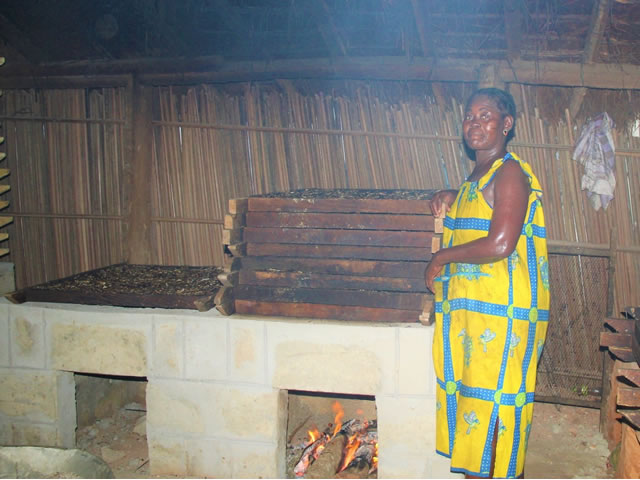
The use of the traditional mud-built fish smoking oven poses a plethora of health and economic challenges for many fish processors in Ghana. Some adverse impacts associated with its use include poor eyesight and respiratory problems caused by frequent exposure to smoke, high consumption of fuelwood, reduced fish quality, and nutritional value due to the high level of polycyclic aromatic hydrocarbons (PAHs) contained in fish smoked with the traditional ovens <<Read More
Training on Fish Handling & Technology Adoption

Across the beneficiary districts, over 300 female fishmongers have been trained on best fish handling practices, technology adoption, and occupational safety and health (OSH) by the Power to the Fishers project. The training has equipped fishmongers with the know-how in maintaining good hygiene when handling fish and making the most out of the energy-efficient ‘Ahotor’ oven. Furthermore, the training educated recipients on the relevance of packaging and branding of their smoked fish <<Read More
The Coconut Waste Project Engages Chiefs and Elders Within the La Nkwantanang Madina Municipality

The European Union-funded Coconut Waste Project (COWAP) has engaged chiefs and elders of some communities within the La-Nkwantanang-Madina Municipality as part of the project’s community entry activities. These communities included Danfa, Adoteiman, Okataban, and Oyarifa. The team introduced the project to the chiefs and elders of the communities and highlighted the key impacts of the project. <<Read More
CDO Embarks on a Data Collection Excercise to Investigate the Social and Financial Inclusion of Fisherfolk.
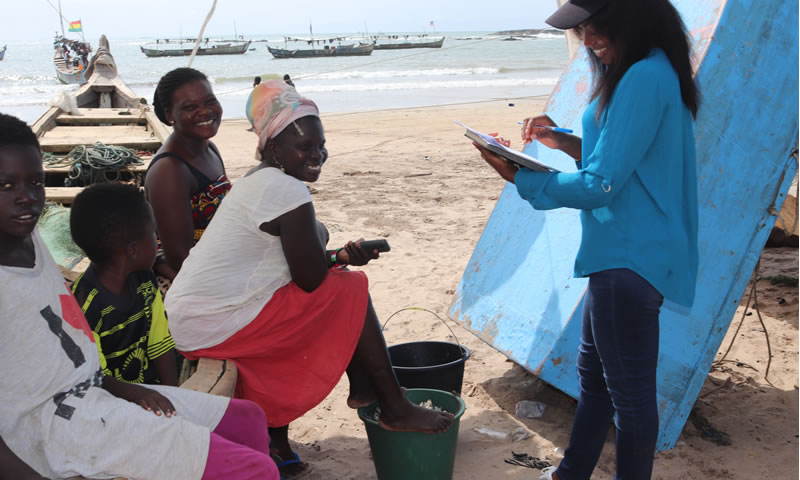
The project team of the Power to the Fishers has conducted a data collection exercise to investigate the social and financial inclusion of fisherfolk. The objective was to find out the perceptions, knowledge and adoption rate of fintech and social protection services among fisherfolk << Read more
Capacity Building on VSLA for the Power to the Fishers Project Team.
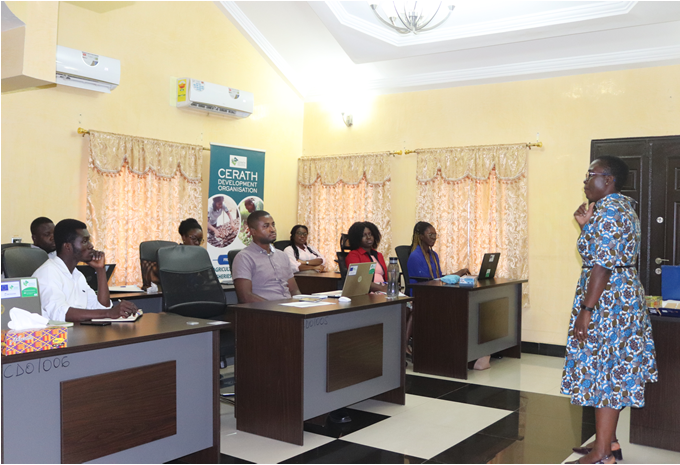
CERATH Development Organization had a two-day in-house training to build the Power to the Fishers Project (PTF) project team’s capacity on Village Savings and Loans Association (VSLA). This was to equip the project team with the needed capacity and techniques for the formation and management of VSLAs. This contributes to the provision of social protection services (savings and credit) to beneficiaries of the PTF project. << Read more.
The EU-funded Power to the Fishers Project donates PPEs and Relief Items to the Awutu Senya District.
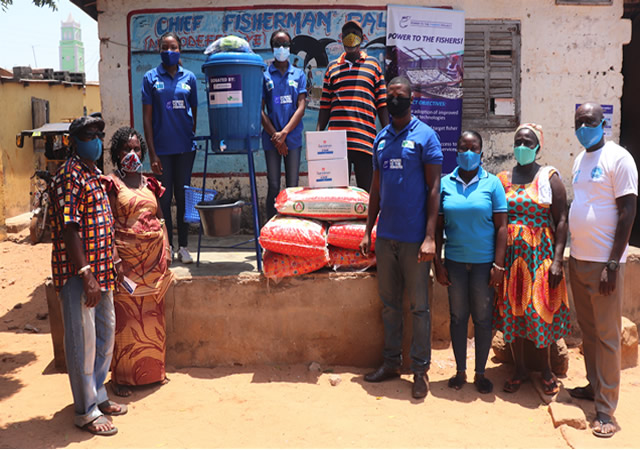
Project beneficiaries (fisherfolks) in the Awutu Senya District were sensitized on the COVID19 pandemic, and measures to prevent its transmission. The project manager, Derek Adabie, led the discussion on the spread and symptoms of COVID-19, as well as its preventive measures (which include practical ways of ensuring social distancing). He further carried out demonstrations on the appropriate use of PPEs, handwashing with soap under running water, and the application of alcohol-based sanitizers. The activity ended with a donation of bags of rice, hand sanitizers, nose masks, and veronica bucket to the community. The project team with the help of community folks pasted posters of COVID-19 related information at vantage points in the community. << Read more about this story.
Forming Learning Group for Fishmongers
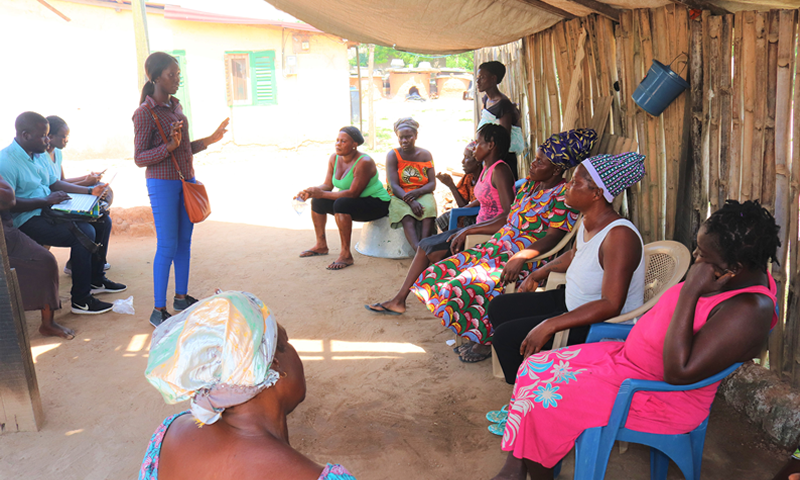
The European Union-funded Power to the Fishers project constituted learning groups for fishmongers in selected coastal communities of Ghana to promote skills and technology transfer on improved smoking technologies and best fish handling practices among fishmongers <<Read More
Study Tour Organized For the Power to the Fishers Project Beneficiaries
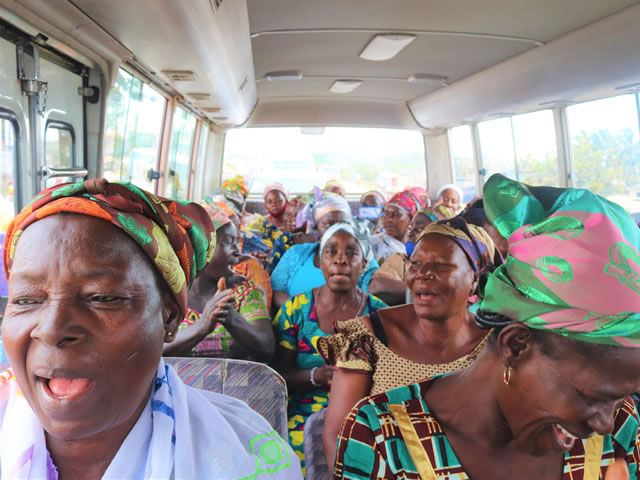
The Power to the Fishers project, funded by the European Union, organized a study tour to the Central and Western Fishmongers Improvement Association (CEWEFIA) compliance facility. This was organized for 75 lead fishmongers, all being women, in the project’s beneficiary communities <<Read More
Children of the Landfill sites
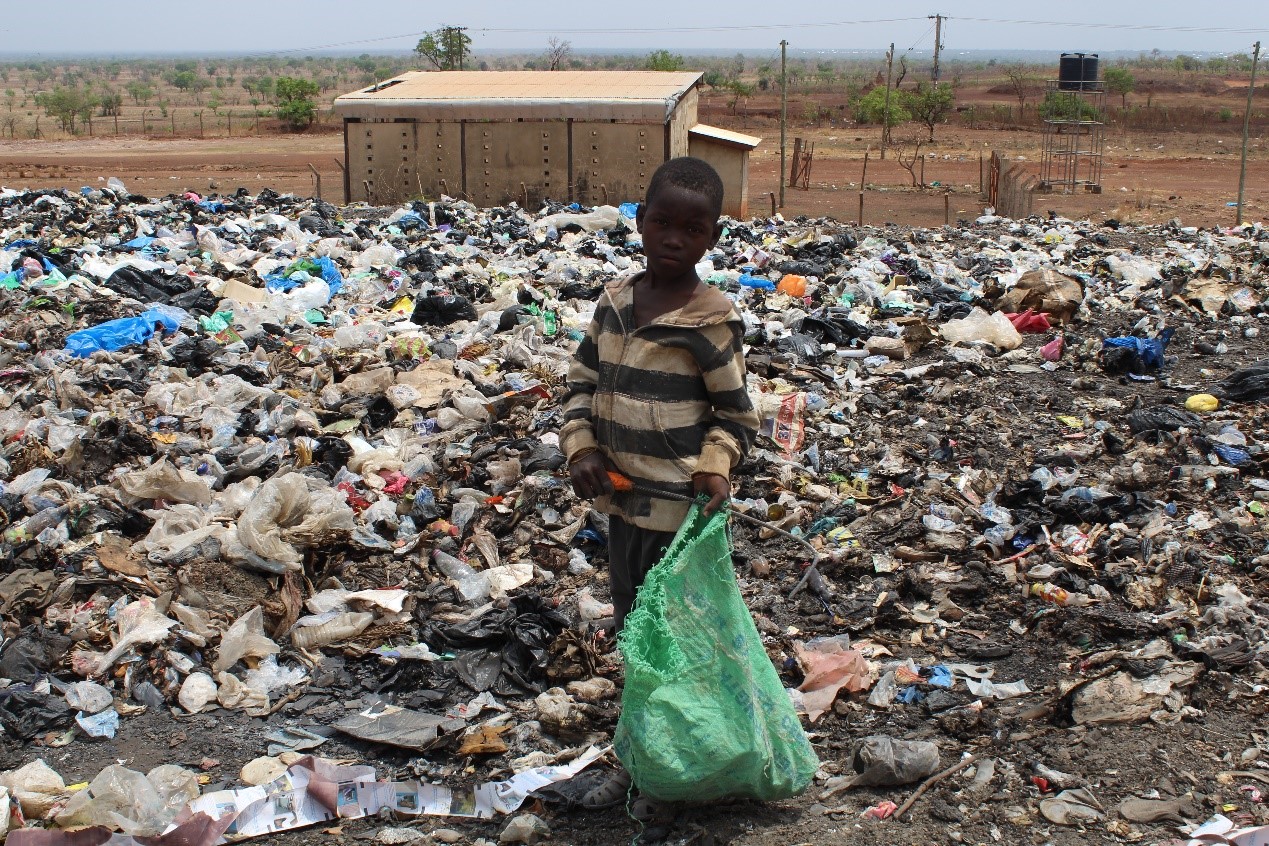
Waste picking has been a source of livelihood for many poor people across the globe since antiquity. However, modern trends in waste picking took root during industrialization in the 19th century. Waste picking has become a popular occupation in Tamale because of the tons of waste produced every day. Waste picking provides work to the unskilled, underage, and poor. The combination of large amounts of waste and abject poverty creates the ideal condition for children to be pushed into work. Working as a waste picker comes at a cost, especially if you are a child as it stops children from attending school and deprives children of their health. It also leaves such children more vulnerable to abuse. << Read more about children of the landfill sites

